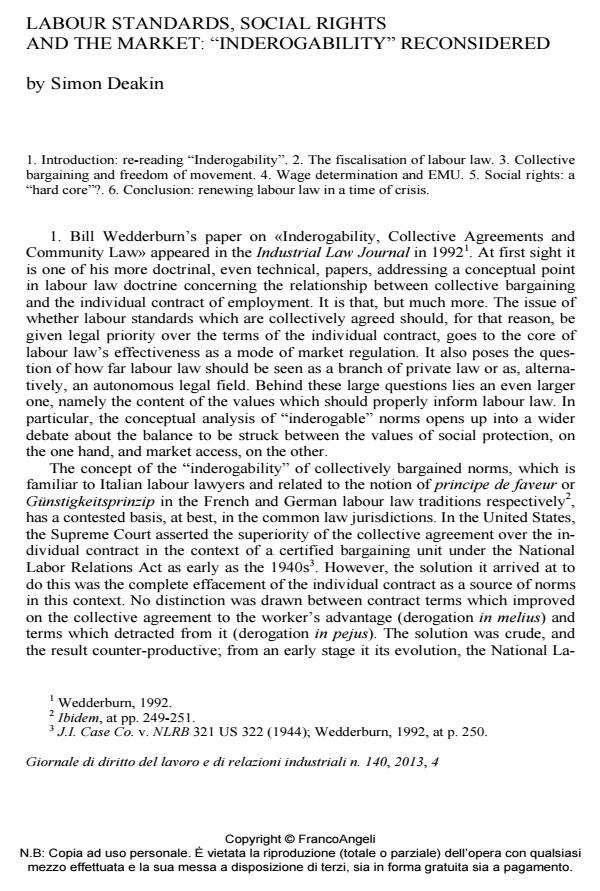Labour standards, social rights and the market: "inderogability" reconsidered
Titolo Rivista GIORNALE DI DIRITTO DEL LAVORO E DI RELAZIONI INDUSTRIALI
Autori/Curatori Simon Deakin
Anno di pubblicazione 2013 Fascicolo 2013/140
Lingua Italiano Numero pagine 16 P. 549-564 Dimensione file 339 KB
DOI 10.3280/GDL2013-140002
Il DOI è il codice a barre della proprietà intellettuale: per saperne di più
clicca qui
Qui sotto puoi vedere in anteprima la prima pagina di questo articolo.
Se questo articolo ti interessa, lo puoi acquistare (e scaricare in formato pdf) seguendo le facili indicazioni per acquistare il download credit. Acquista Download Credits per scaricare questo Articolo in formato PDF

FrancoAngeli è membro della Publishers International Linking Association, Inc (PILA)associazione indipendente e non profit per facilitare (attraverso i servizi tecnologici implementati da CrossRef.org) l’accesso degli studiosi ai contenuti digitali nelle pubblicazioni professionali e scientifiche
Il saggio rilegge l’articolo di Bill Weddeburn sul concetto di inderogabilità, pubblicato nel 1992, alla luce della recente evoluzione del diritto del lavoro europeo. Nei primi anni Novanta il rapporto tra il contratto di lavoro, la contrattazione collettiva e la legge è divenuto sempre più fluido. Dalla metà degli anni 2000 si è registrato un riallineamento sempre più radicale. La tradizionale gerarchia delle fonti si sta dissolvendo in un sistema policentrico di ordini normativi concorrenti. Di conseguenza, l’operatività degli standard lavoristici è sempre più influenzata dalla normativa fiscale, da quella sulla libera circolazione e dal quadro giuridico relativo all’unione economica e monetaria. Questi sviluppi presentano pericoli per il diritto del lavoro, ma anche opportunità per la sua evoluzione.
Parole chiave:Inderogabilità; Wedderburn; Diritto del lavoro dell’Unione europea; Evoluzione; Standard lavoristici.
Simon Deakin, Labour standards, social rights and the market: "inderogability" reconsidered in "GIORNALE DI DIRITTO DEL LAVORO E DI RELAZIONI INDUSTRIALI " 140/2013, pp 549-564, DOI: 10.3280/GDL2013-140002